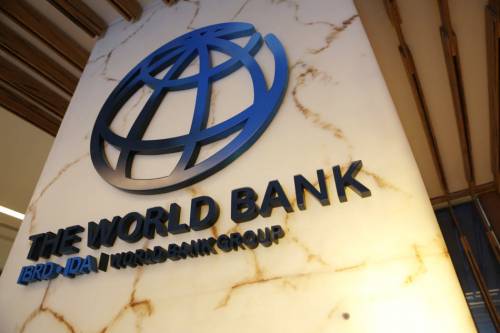Four In 10 Citizens Live Below National Poverty Line In Nigeria — World Bank
Posted by Samuel on Wed 23rd Mar, 2022 - tori.ng 
International financial institution, the World Bank has disclosed in a new report that millions of Nigerians are currently living in extreme effects of poverty.
According to the report, Nigerian households have now resorted to dangerous coping strategies, including reducing education and scaling back food consumption, which could have negative long-run consequences for human capital.
According to the report titled, “A Better Future for All Nigerians: Nigeria Poverty Assessment 2022”, no fewer than four in 10 Nigerians live below the national poverty line.
The report noted that Nigeria's poverty reduction efforts were being hampered by sluggish growth, low human capital, labour market weaknesses, and exposure to shocks.
The report represents the culmination of the World Bank’s engagement on poverty- and inequality-relevant data and analytics in Nigeria in the past two years.
It draws primarily on the 2018/19 Nigerian Living Standards Survey (NLSS), which provided Nigeria’s first official poverty numbers in almost a decade, as well as the Nigeria COVID-19 National Longitudinal Phone Survey (NLPS). These surveys were implemented by Nigeria’s National Bureau of Statistics (NBS) in collaboration with the World Bank.
The report noted that many Nigerians, especially those in the north lack education and access to basic infrastructure, such as electricity, safe drinking water, and improved sanitation.
It also noted that just 17 percent of Nigerian workers hold the wage jobs best able to lift people out of poverty.
The report said climate and conflict shocks – which disproportionately affect Nigeria’s poor – are multiplying, and their effects have been compounded by COVID-19; yet government support for households is scant adding that households have adopted dangerous coping strategies, including reducing education and scaling back food consumption, which could have negative long-run consequences for their human capital.
“It is clear that much needs to be done to help lift millions of Nigerians out of poverty, including boosting health and education, bolstering productive jobs, and expanding social protection” said Shubham Chaudhuri, World Bank Country Director for Nigeria.
“Yet implementing pro-poor initiatives requires unlocking fiscal space; reforming expensive subsidies – including fuel subsidies – will be essential, alongside countervailing measures to protect the poor as reforms are effected.”












































